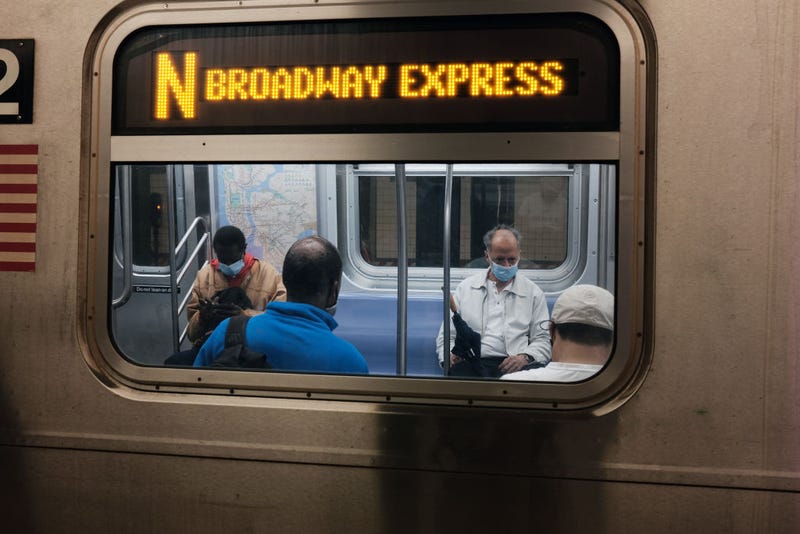
NEW YORK (1010 WINS) — The MTA’s backup power supply failed on multiple levels Sunday night, allowing a brief Con Edison power disturbance to cause an unprecedented service outage across the subway system, the agency announced Monday.
Service was hobbled along 83 trains along the 1,2,3,4,5,6,7 and L lines for hours Sunday night after a manhole fire in Long Island City caused a Con Edison power surge around 8:20 p.m.
At that time, the MTA’s short-term battery-powered backup system kicked in to briefly keep trains running — but several other of the agency’s automatic emergency power functions failed, leaving several hundred riders stranded on stalled trains during the outage, according to the MTA’s preliminary investigation ordered by Gov. Kathy Hochul.
"As a result of the review I directed this morning, the MTA has uncovered a sequence of failures that resulted in some backup systems not providing power as designed last night, including an additional failure to quickly diagnose the underlying cause,” Hochul said in a statement.
Two MTA emergency generators failed to kick in, which were designed to replaced MTA’s battery-powered system as a longer-term backup, according to the agency.
On top of that, the MTA’s system failed to automatically return power to Con Ed as it was designed, the MTA found.
An alert set up to notify MTA managers of such power failures didn’t work, and alerts were never sent out.
MTA crews carried on believing its power system was operating properly until the short-term, battery-powered system ran out around 9:14 p.m.
Hochul said she has ordered the MTA to retain two “independent engineering frims” to help the agency conduct a “deep dive of what happened and make recommendations to ensure this does not occur again.”
"My message to the riders is this: We are working to find out the full extent of what went wrong, and we will fix it,” Hochul added. “New Yorkers deserve absolute confidence in a fully functioning subway system, and I promise to do everything in my power to restore that confidence."
During the outage, the MTA lost the ability to communicate to subway stations from the Rail Control Center; the agency relies on this control center to direct all of the impacted lines’ train speeds and movements through a computer-based system.
Advocates on Monday said the outage is a sign that the MTA must make resiliency a higher priority at the agency as it reevaluates its capital spending during the pandemic. Danny Pearlstein, a spokesman at the Riders Alliance.
“The infrastructure is getting older; extreme weather events are happening more frequently and a resilient transit system should be at the top of the governor’s agenda,” he said, adding that Hochul and the MTA are currently ”making the best of a bad situation.”

